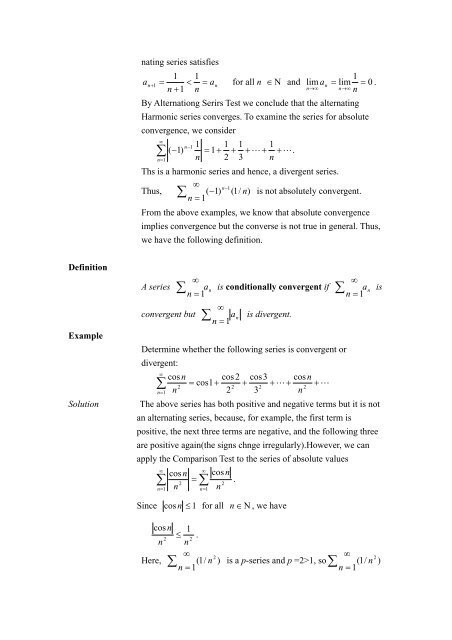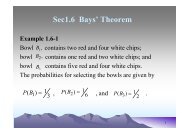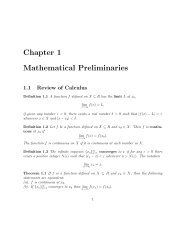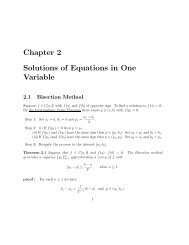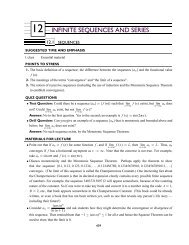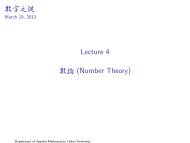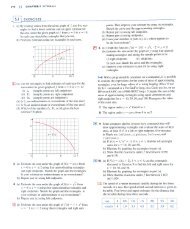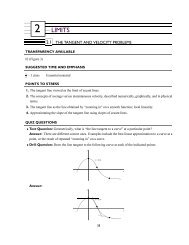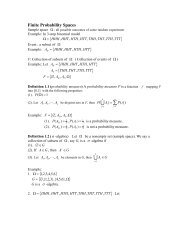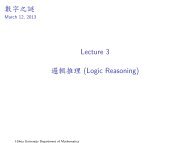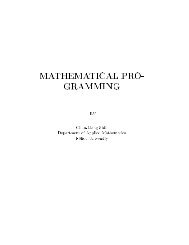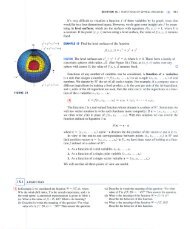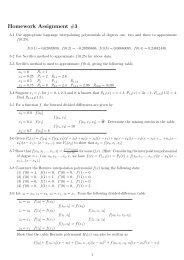Alternating Series, Absolute Convergence
Alternating Series, Absolute Convergence
Alternating Series, Absolute Convergence
- No tags were found...
Create successful ePaper yourself
Turn your PDF publications into a flip-book with our unique Google optimized e-Paper software.
nating series satisfiesa 1 1n= < a nn + n=+ 1for all n ∈ Ν and lim a lim1n= = 0 .1n→∞n→∞nBy Alternationg Serirs Test we conclude that the alternatingHarmonic series converges. To examine the series for absoluteconvergence, we consider∑ ∞n=1( −1)n−1 1 1 1 1= 1++ + L + + L.n 2 3 nThs is a harmonic series and hence, a divergent series.∞n−1Thus, ∑ ( −1)(1/ n)is not absolutely convergent.n = 1From the above examples, we know that absolute convergenceimplies convergence but the converse is not true in general. Thus,we have the following definition.DefinitionExampleSolutionA series∞∑ ann = 1convergent butis conditionally convergent if∞∑ an = 1nis divergent.∞∑n =Determine whether the following series is convergent ordivergent:∑ ∞n=1cos n cos 2 cos3 cos n= cos1++ + L + + L22 22n2 3 nThe above series has both positive and negative terms but it is notan alternating series, because, for example, the first term ispositive, the next three terms are negative, and the following threeare positive again(the signs chnge irregularly).However, we canapply the Comparison Test to the series of absolute values∞∑cos n=∞∑cos n.22n=1 n n=1 n1a nisSince cos n ≤ 1 for all n ∈ Ν , we havecos n 12 ≤2 .n n∞2∞2Here, ∑ (1/ n ) is a p-series and p =2>1, son =∑ (1/ n )1n = 1


